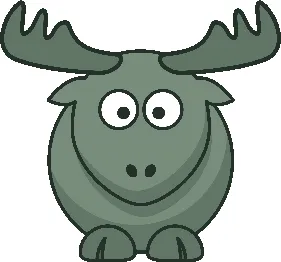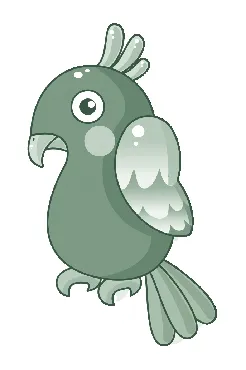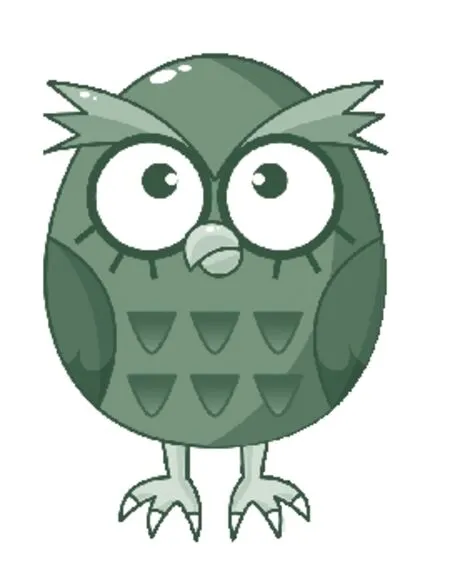The Weird Plurals in English英语中的古怪名词复数
2017-10-12ByKoryStamper翻译Portia
⊙ By Kory Stamper ⊙ 翻译:Portia
Word Story 英语话廊
The Weird Plurals in English英语中的古怪名词复数
⊙ By Kory Stamper ⊙ 翻译:Portia

You may have seen the video in which I discussed the plurals of“octopus[章鱼].” After itposted[发布],I got aslew[大量]of emails that said,“But this doesn’t explain all these other weird plurals.”
English is amongrel[混合物]of a language.It began life as a hard-nosedGermanic[日耳曼语的]dialect,wasoverrun[侵占]by French-speaking Normans,had a thing for Latin and Greek borrowings,collected whateverlinguistic[语言学的]crumbs[少许]fell out of itssea-faring[航海的]merchant[商人]class’s coats,picked up house,moved across a few oceans,eavesdropped[偷听]on the natives,settled down and invited its poor European and eastern cousins to live with it,and then learned how to use a computer.You can’t expect a language that’s been that well-travelled to be regular.
Goose[鹅]and moose[驼鹿]are perfect examples of English’s “take what it can from wherever it can” history.Goose is a word that dates back about a thousand years to the old Englishgos,and in old English,the plural ofgoswasges.Both the singular and plural forms were taken into Middle English and are preserved in modern English as goose and geese.
Moose,on the other hand,is arelatively[相对地]recent addition to the language.It’s about 400 years old and is borrowed directly fromAlgonquian[阿尔贡金语],a North American native language that has noresemblance[相似之处]to old English.Why would we give moose the old English plural meese? Well,we wouldn’t,because,by the time moose came into English,we made plurals by adding an “s” or “es” to the ends of nouns.So,then,why is the plural of moose moose? Because,in English,we tend to use the singular form as the plural when talking aboutgame[猎物]animals like deer andelk[加拿大马鹿].The final “s” in mooses got dropped,andvoila[瞧]! Two moose.
English is a dynamic,changing“critter[异常动物]” and,contrary to what some people may think,it always has been.Those irregular plurals are evidence of the richness of ourprofligate[挥霍、放荡],weird language.
参考译文
你们可能已经看过我解释octopus一词复数形式的视频了。视频发布后,我收到了许多电子邮件。人们在邮件中说:“但这视频并不能说明其他古怪的名词复数存在的原因啊。”
英语是一门混合语言。它一开始是顽强的日耳曼方言,后来惨遭操法语的诺曼人蹂躏,特别喜欢借鉴拉丁语和希腊语,然后又从出海远航的商人那里收集各国语言的只言片语;接下来它收拾家当,数次飘洋过海,在偷听了各地原著民的谈话后,终于安定下来,并把欧洲和东边的穷表亲邀来一起过日子,最终还学会了怎么用电脑。对这样一门曾经走南闯北的语言,你总不能指望它会按规则行事吧。
随时随地兼收并蓄是英语的历史特色,而goose和moose正是反映这一特色的绝好例子。Goose一词的历史有大约一千年。在古英语中,它原为gos,复数是ges。Gos的单数和复数形式为中世纪英语所吸收,并在现代英语中以goose和geese的形式保存下来。
而moose呢,它是英语中相对较新的成员。它有约四百年的历史,是直接从阿尔贡金语拿来的外来词,而阿尔贡金语是一门北美的原著民语言,与古英语没有任何相似之处。为什么要让moose有古英语式的复数形式meese呢——呵呵,我们不会那么做,因为在moose一词加入英语这个大家庭的时候,名词单数变复数的方式已经变成了在名词后面加s或es。既然这样,那为什么moose的复数形式是moose呢?因为英语在谈论猎物类动物(如deer和elk)时,往往会让单数和复数保持一致,于是,mooses最后面的s被拿掉了——就这样,moose的复数形式还是moose。
英语是一只生机勃勃、不断变化的“怪物”,与许多人的想法相反,这本就是它的常态。那些不规则名词复数正是英语既放荡、古怪,又异常丰富多彩的例证。





